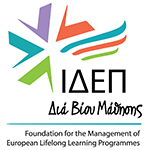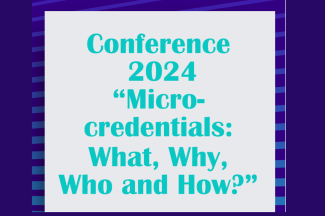CONFERENCE CONCLUSIONS
The recent discussions and workshops organized in the framework of the 2024 Conference “Micro-credentials: What, Why, Who, and How?”, which was co-organized by the Foundation for the Management of European Lifelong Learning Programmes and the Human Resource Development Authority of Cyprus (HRDA), in November 13-14, 2024, in Larnaca, provided comprehensive insights into the understanding of Micro-credentials (MCs) and their potential to address emerging educational, technological, and market needs. Below is a synthesis of the outcomes and proposed directions:
1. Emphasizing Learner-Centricity
The focus of micro-credentials must remain firmly on the learner, acknowledging diverse learning styles, ages, and circumstances. They must prioritize inclusivity by accommodating learners from different demographics, such as elder individuals, migrants, and those who may have dropped out of traditional education systems. This requires adopting flexible, stackable, and quality-assured training models to ensure accessibility and relevance.
2. Bridging Skills Gaps
Micro-credentials should address gaps in labor markets by equipping individuals with targeted skills that align with current and emerging industry demands. This involves fostering collaboration among stakeholders, including industry representatives, vocational education and training (VET) providers, and higher education institutions, to identify and address specific skill requirements at basic, intermediate, and advanced levels.
3. Political Support and Stakeholder Engagement
Strong political will is necessary to advance the integration of MCs into educational and vocational systems. Governments must dedicate resources, both monetary and human, to support their development and implementation. National Qualifications Frameworks (NQFs) must play a pivotal role, ensuring the recognition, transferability and stackability of the learning outcomes of MCs.
4. Creating Trust through Standardization and QA
A unified approach to Quality Assurance (QA) and accreditation is crucial for building trust in MCs at both national and international levels. This includes developing mechanisms for validation and certification that adhere to clear and transparent standards. Establishing a centralized accrediting body with decentralized action and thematic committees could help manage this effectively.
5. Promoting Lifelong Learning
Micro-credentials should foster a culture of lifelong learning by providing accessible, bite-sized opportunities (based on the national context, the bite-sized should be defined with upper and lower ranges) that support reskilling, upskilling, and initial skilling. This adaptability is essential to meet the evolving demands of fast-paced technological advancements, such as those influenced by AI, and the new learning paradigms embraced by younger generations like Gen Z and Gen Alpha.
6. International Collaboration and Best Practices
Lessons can be drawn from countries where micro-credentials have been successfully integrated into their broader educational systems as a tool for Lifelong Learning. The creation of international partnerships can reduce costs, enhance scalability, and ensure alignment with global standards. Already, platforms have been created towards streamlining micro-credentials delivery.
Micro-credentials are poised to play a transformative role in education and workforce development. By focusing on flexibility, inclusivity, and collaboration, they can support sustainable development goals while ensuring alignment with rapidly shifting demands in global economies. The success of micro-credentials hinges on cohesive strategies, persistent advocacy, and the unwavering commitment of all stakeholders to realize their full potential.

